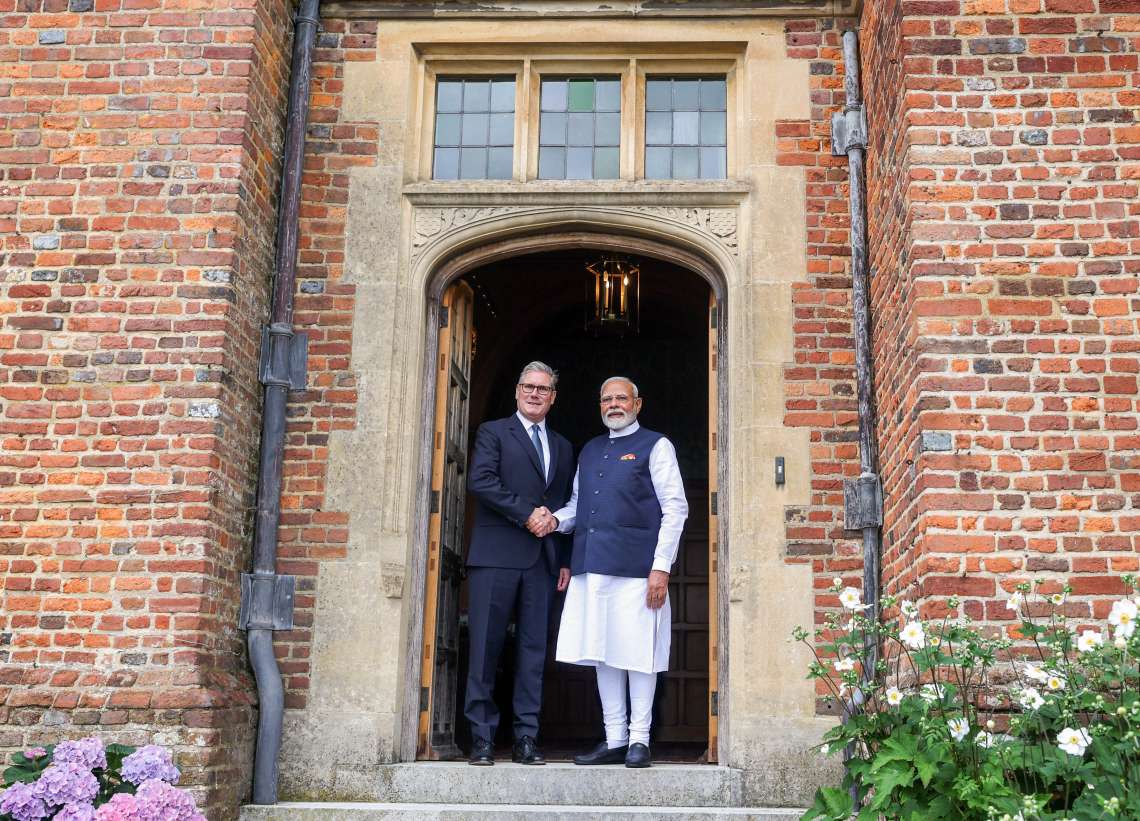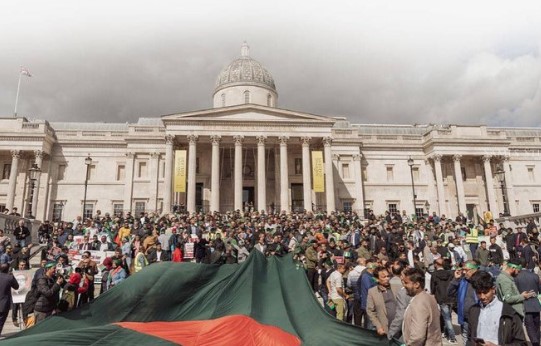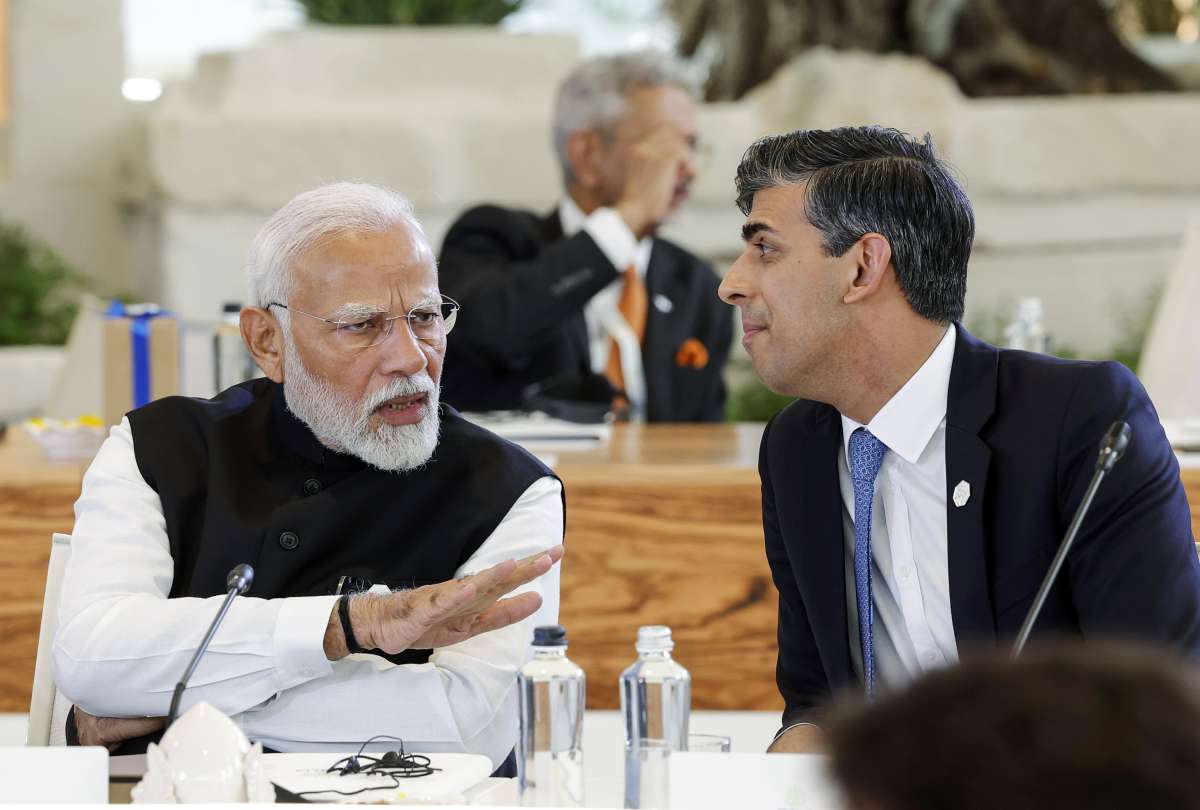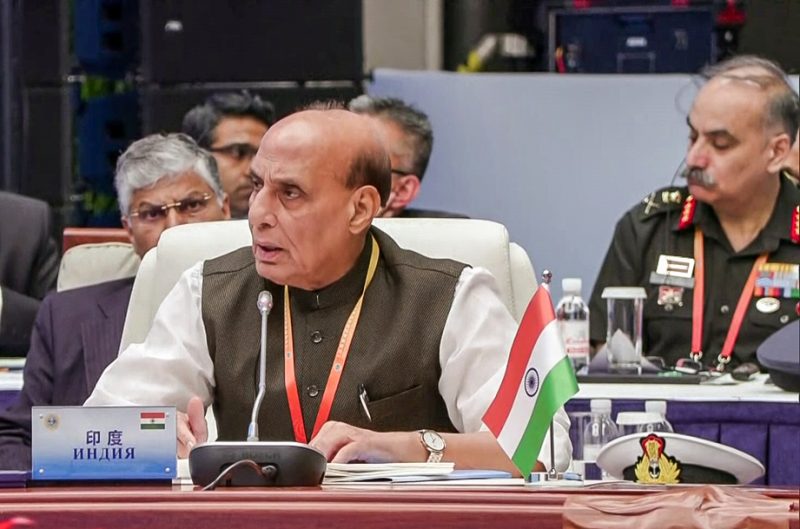Current laws stipulate that any local authority wanting to raise council tax by 5% or more has to hold a referendum first…reports Asian Lite News
Labour have said they will not change council tax bands if they win the general election. The party has promised to not raise income tax, national insurance or VAT, but has avoided making explicit commitments on other taxes, including council tax bands.
However, Labour minister Jonathan Ashworth said: “No increase in income tax, no increase in national insurance, no increase in VAT or corporation tax. We’re not doing council tax re-banding.”
But, he would not specifically rule out a rise in fuel or stamp duty.
He added: “We have outlined that all our policies are fully funded, they do not require additional tax increases.”
Current laws stipulate that any local authority wanting to raise council tax by 5% or more has to hold a referendum first. Labour politicians, including shadow chancellor Rachel Reeves, have previously called for a council tax revaluation as current rates are based on house prices from 1991.
Some parts of London have seen prices rise by more than 800% in that time, whereas in places like Hartlepool, they have barely tripled, according to the Land Registry.
In Wales, the Labour Party has promised to introduce new council tax bands and tax band rates, but that has been pushed back to 2028.
Labour leader Keir Starmer has described the Welsh Labour government as a “blueprint for what Labour can do across the UK”, and has spoken about his desire to reform local authority funding.
Asked earlier this month whether he would rule out a council tax review in England, Starmer said council tax was “too high for too many people”, and he was “not wanting to raise tax”.
Torsten Bell, Labour candidate for Swansea West and head of thinktank the Resolution Foundation, wrote about the need for revaluation in his book, Great Britain? How To Get Our Future Back.
“It’s time to bite the bullet and carry out a revaluation of properties in England and Scotland (Wales has already done it),” he wrote.
“We need to either add more bands, increase the bill variation between them, or move to a fully proportional tax on property values.”
Reacting to Ashworth saying Labour will not change council tax bands, the Conservative chief secretary to the Treasury, Laura Trott, said: “Rachel Reeves has failed to rule out increasing council tax, and this morning Jonathan Ashworth was making it up as he went along. Labour are in chaos on tax.
“Labour are already introducing higher council tax bands and a full council tax revaluation in Wales. So it is time Keir Starmer comes clean with the British public and admits council tax will be higher under Labour in England too. The £38.5bn black hole in their manifesto means there would be at least a £2,094 tax bill for working families under Labour. And that’s just the start, Wes Streeting admitted their manifesto is not the ‘sum total’ of their future spending.”
Separately on Monday, Mr Shapps said he was a “realist” and would not “try and pretend black is white” by claiming the Conservatives are on course for victory.
He told Times Radio it was “possible [for the Conservatives] to win the election”, but conceded it is “not the most likely outcome”, adding: “I’m a realist.”
Asked if a Tory victory is unlikely, he replied: “I think that’s the realistic position, isn’t it? I mean, I live in the real world. So, you know, let’s not try and pretend black is white.”
So why are the Conservatives adopting this strategy?
Labour says the focus on tax is a sign of how “desperate” the Tory campaign is, but Conservative insiders think they’re planting doubt in voters’ minds over Keir Starmer’s economic policy and limiting his room for manoeuvre if he becomes prime minister.
Homes in Wales were revalued over the last 12-months, creating new property bands that could raise council tax for over 470,000 homes and reduce it for about 800,000 households.
Defence Secretary Grant Shapps accused Labour of secretly planning to copy the scheme to pay for “unfunded spending promises”.
“Once you start getting into the details, we know they plan to reband the council tax as they have done where Labour runs things in Wales,” he said.
Labour is selling itself as the party of “wealth creation”, with the aim of improving living standards for working people. Remove inflation and the typical person is only 5% better off than they were at the end of the 2008/2009 financial crisis.
Central to Labour’s pitch is its claim that it will encourage more investment, something that has been languishing since 2016. It hopes this will lead to more funding for training, skills, technology and buildings which, economists say, would make us more efficient. It’s that, the amount we each produce per hour – or productivity – where the UK lags behind many international peers.
But businesses need more than good intentions. There are relatively few actual policies, apart from reforms to planning and education, to encourage such business spending. And while there are £3.5bn of public “green” investments, including upgrading homes and investing in hydrogen, it’s a fraction of the package worth hundreds of billions deployed in the US by President Biden.
Official projections have the economy growing over the next few years, although there’s always the risk unexpected events blow things off course. The question is how much these plans would add and how soon. Investments typically take years to pay off and impact our pockets.














